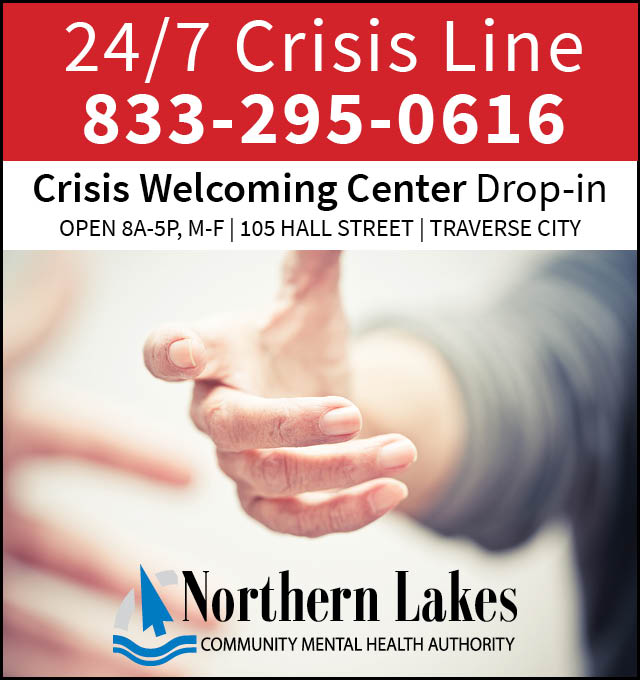
Changes Underway Across NMC - Except To Tuition
By Beth Milligan | June 30, 2020
Significant changes are underway across the Northwestern Michigan College (NMC) campus, with some students returning for face-to-face instruction, the Dennos Museum Center and Lobdell’s reopening, construction nearly complete on the new $15 million West Hall Innovation Center, and staff preparing for a reworked “hybrid” model of learning this fall. But even with the dramatic shifts taking place – and despite projected funding and enrollment cuts due to the pandemic – NMC has pledged to keep at least one thing the same, freezing student tuition rates for the coming year.
Students in programs requiring hands-on or face-to-face learning are being allowed to return to campus, including in the police academy, dental assistant, automotive, welding, Great Lakes Maritime Academy (GLMA), aviation, water studies, Great Lakes Culinary Institute, and marine technology tracks. Some GLMA cadets – who’ve been tested for coronavirus and have been quarantined in East Hall – will depart on the training ship State of Michigan Thursday. The tug Mississippi also recently arrived at the GLMA campus from Ohio to assist in cadet training. According to NMC President Nick Nissley, multiple safety measures are being implemented for students in all programs returning to campus.
“Anytime you’re on campus, you have to have a mask,” he says. “That’s the number one preventative measure recommended by the CDC and health officials. The other is social distancing and keeping six feet between people. We’re also sanitizing surfaces and doing deep cleans. We won’t have classes on Friday on campus to allow for cleaning.”
Lobdell’s – the 90-seat teaching restaurant for the Great Lakes Culinary Institute overlooking Grand Traverse Bay – reopens its doors today (Tuesday) to the public. The restaurant will operate Tuesdays and Wednesdays from 7am to 11am for the month of July, with seating capacity at 50 percent and masks required when guests aren’t at tables. The Dennos Museum Center will reopen to the public tomorrow (Wednesday), similarly offering restricted hours – Tuesday-Thursday fron 1pm-5pm – and requiring face masks, reduced capacity, and social distancing.
The cautious summer reopening is a test run for this fall, when NMC will use a “hybrid” combination of face-to-face classes – primarily for the above programs, plus some required lectures and labs in other tracks – and online and livestream courses. Nissley praises staff for taking just 45 days to provide a recommendation on retooling the entire collegiate experience this fall to reflect pandemic safety realities. “We knew we weren’t going back to normal, but rather to some kind of new normal,” he says. That includes within student dorms, where room capacity will be limited to two students instead of four to reduce the risk of coronavirus spread.
While NMC was able to increase its 2020 summer enrollment by three percent compared to last year – a figure Nissley points to proudly during a time when some Michigan community colleges have seen enrollment drop by 30 or more percent – the college is more wary about fall projections. Fall semester applications are down 15 percent over last year, while fall contact hours are down 20 percent. Those figures could improve as students become familiar with NMC’s new hybrid model and gain more confidence enrolling in fall classes, but staff are still projecting a fall decline.
The enrollment decline and other funding cuts – such as an anticipated 15 percent decline in state appropriations – required NMC to dip into its reserves to balance this year’s budget, which trustees approved Monday night. Nissley says NMC also paused capital improvement and maintenance projects and used other “belt tightening” measures to balance the budget – but did not lay off any full-time staff and did not raise student tuition rates. Those will remain for 2020-21 at $109 for in-district rates, $227 for out-of-district, $296 for out-of-state, and $334 for international. “(Raising rates) would be an easy way to balance a budget, but our board and myself felt in a time like this, where our students have been hit so hard economically…having no tuition increase is just good common sense,” Nissley says. “We know it’s a point of pride in the community to have an affordable college education.”
There are other bright spots on NMC's campus. The college's long-planned $15 million West Hall Innovation Center – a project that will modernize and expand the 50-year-old West Hall building – is nearly complete, Nissley says. “We fell a little behind because there were no workers on-site (during the shutdown), but we’re making up time,” he says. “The key thing we’re waiting on now is an elevator inspection. But it will be ready for the fall.” NMC’s library has already moved into the 54,000 square-foot, multi-story space (pictured), which will offer “innovative and transformative learning environments and multiple academic and simulation spaces,” according to the college.
NMC’s Extended Education department is also working to creatively reimagine its delivery model for community classes, non-credit certificates, and professional development and continuing education unit (CEU) courses this year. Approximately 10,000 participants annually take part in Extended Education classes ranging from cooking to foreign language to nature to art courses, with over 300 instructors involved in the program. According to Director Laura Matchett, the department moved its College For Kids program online for the summer, and is offering “kit” classes that allow kids to learn hands-on skills like making stop-motion movies with LEGO kits.
Extended Education has also significantly expanded its adult online offerings in areas like business and professional development and continuing education credits for teachers. Staff recently launched a podcast called NMC Driveways to highlight different aspects of NMC, and are busy now developing a fall slate of community programming. “We’re looking toward offering a lot of virtual classes online, but also live instructor-led classes,” Matchett says. “We’ve laid out three priorities for Extended Ed, which are keeping the community engaged, creating online learning opportunities, and strengthening community resources.”
Matchett says Extended Education is adding new courses regularly throughout the summer, and will release a fall catalog in mid-September highlighting the new and reconfigured course offerings through the end of the year. “We’re starting first with learner safety and creating a safe learning environment, and then we’ll put together a wonderful spread of classes and learning opportunities,” she says.
Comment






